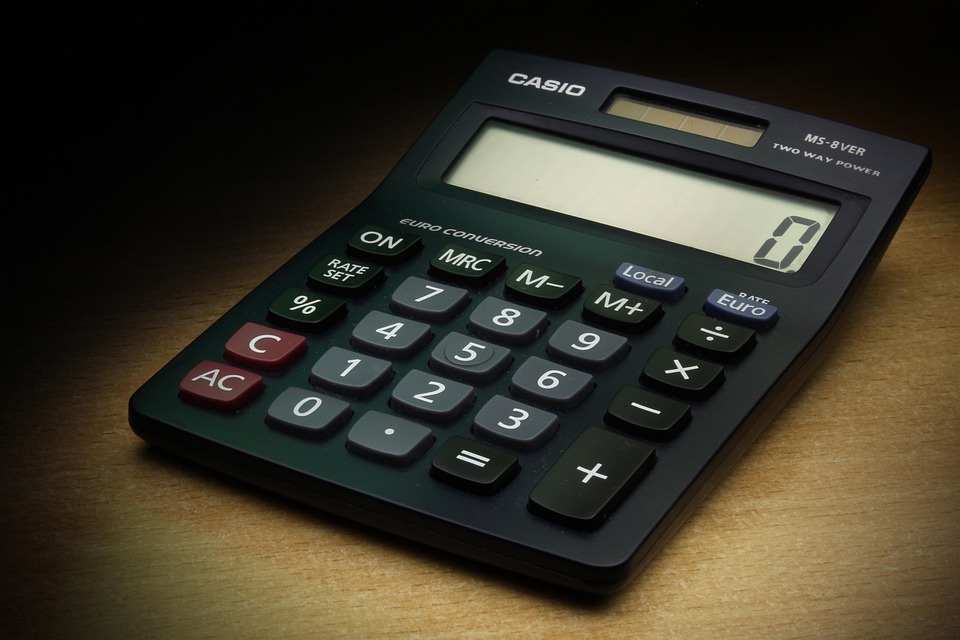Personalized Fitness: The Power of Calculators in Tailoring Your Exercise Plans
In the ever-evolving landscape of health and fitness, the notion of personalized fitness has emerged as a key player in helping individuals achieve their health goals. In recent years, fitness calculators—tools that provide personalized recommendations based on individual data—have gained significant popularity. These calculators use algorithms and scientific principles to create tailored exercise and nutrition plans. This article explores the role of calculators in personalizing fitness, their advantages, limitations, and the future of personalized fitness as technology continues to advance.
The Significance of Personalized Fitness
Understanding Personalized Fitness
Personalized fitness refers to designing exercise and nutrition plans that cater to individual needs and goals. Factors such as age, gender, body composition, fitness level, and specific health goals (such as weight loss, muscle gain, or improved athletic performance) are considered. This approach contrasts sharply with one-size-fits-all programs that may not yield the desired results. By personalizing exercise regimens and dietary recommendations, individuals are more likely to stay motivated and engaged, ultimately leading to better adherence and outcomes.
The Role of Data in Fitness
In the age of information, data plays a crucial role in how we understand our bodies and fitness. Fitness trackers, wearable technology, and mobile applications gather an array of data points, including heart rate, step counts, calories burned, and more. This continuous stream of information allows users to monitor their progress and adjust their regimens accordingly.
Introduction to Fitness Calculators
Fitness calculators serve as the bridge between raw data and actionable fitness plans. They analyze an individual’s specific data to generate personalized recommendations for workouts and nutrition. Common calculators include those for:
- Caloric Needs: Estimating daily caloric intake for weight loss, maintenance, or gain.
- Macronutrient Ratios: Determining the ideal balance of carbohydrates, proteins, and fats.
- Fitness Level Assessments: Evaluating cardiovascular fitness, strength, flexibility, and endurance.
- Body Composition Metrics: Measuring body fat percentage, muscle mass, and BMI (body mass index).
These calculators are usually easy to use, requiring users to input basic information such as age, weight, height, and activity level to receive tailored feedback.
Advantages of Fitness Calculators
Customization and Flexibility
One of the primary advantages of fitness calculators is their ability to provide highly customized plans. By analyzing individual metrics, they consider specific goals and limitations to create a more effective exercise and nutrition program. For instance, a calculator might recommend a high-protein diet for someone looking to build muscle while suggesting a higher carbohydrate intake for a marathon runner.
Scientific Basis
Fitness calculators often rely on established scientific formulas and principles, ensuring that the recommendations are grounded in evidence-based practices. For example, equations like the Mifflin-St Jeor formula can help calculate an individual’s Basal Metabolic Rate (BMR), providing a solid foundation for further caloric and macronutrient calculations. This scientific basis fosters trust among users, as they see their plans rooted in measurable data.
Enhanced Motivation
The personal touch offered by fitness calculators can significantly boost motivation. When individuals receive specific recommendations tailored to their unique circumstances, they’re more likely to feel empowered and committed to their fitness journey. The ability to quantify progress—whether through weight loss, improved performance, or enhanced strength—also serves as a motivating factor.
Accessibility and Convenience
Fitness calculators are typically user-friendly and accessible via mobile apps and websites. This convenience democratizes fitness, allowing anyone with an internet connection to access personalized advice without the need for expensive personal trainers or lengthy consultations. For those just starting their fitness journey or those looking to refine their existing routines, calculators provide an invaluable resource.
Immediate Feedback and Adjustments
In contrast to traditional fitness planning, which may rely on trial and error, calculators enable users to receive instant feedback. If an individual’s exercise regimen or diet doesn’t yield the expected results, they can quickly input updated data and adjust their plans. This agility allows for more effective long-term strategies, as users can respond dynamically to changes in their bodies.
Limitations of Fitness Calculators
Over-Reliance on Data
While calculators provide personalized recommendations based on data, there is a risk that individuals may become overly reliant on these tools. Fitness is not just about numbers; it is a multifaceted endeavor that includes psychological and emotional well-being. Relying solely on data can sometimes lead to obsessive behaviors, such as extreme calorie counting or rigid adherence to exercise regimens.
Lack of Personal Touch
Despite their advantages, fitness calculators lack the personal interaction that a certified fitness professional can provide. Trainers can offer insights, encouragement, and adjustments based on non-verbal cues, motivations, and psychological readiness, which calculators cannot replicate. Personal trainers can also customize plans through ongoing discussions, providing immediate feedback that accounts for energy levels and mental states.
Variability and Accuracy of Inputs
The precision of a fitness calculator’s output is directly dependent on the quality and accuracy of the input data. Individuals often underestimate or overestimate their physical activity levels and caloric intake. Moreover, not all calculators are created equal; some may use outdated algorithms, leading to subpar recommendations. Therefore, users must critically evaluate multiple sources and use calculators as a general guideline rather than definitive solutions.
Individual Variability
Human bodies are complex systems, influenced by diverse factors such as genetics, hormonal imbalances, and psychological factors. Although calculators strive for personalization by using algorithms, they may not take into account the unique biological and psychological differences that influence fitness outcomes. Ultimately, what works for one individual may not work for another, underscoring the importance of a holistic approach to fitness.
The Future of Personalized Fitness
Advancements in Technology
The future of personalized fitness is likely to be characterized by advancements in technology, including artificial intelligence (AI) and machine learning (ML). These technologies can analyze vast amounts of data from various sources—such as wearables, health records, and user-generated inputs—to provide deeper and more nuanced insights. Predictive modeling can enhance the capabilities of fitness calculators, making them even more effective in tailoring plans and recommendations.
Incorporation of Genetics
In recent years, genetic testing has emerged as a tool for personalizing health and fitness recommendations. By analyzing genetic markers, experts can identify predispositions to certain conditions and individual responses to exercise and nutrition. Fitness calculators that incorporate genetic information could revolutionize personalized fitness plans, making them more precise and effective.
Gamification and Social Integration
Integrating gamification elements into fitness calculators can enhance user engagement and commitment. Features such as progress tracking, challenges, and social sharing can create a community around fitness that encourages individuals to stay committed to their goals. Social integration allows users to find support and motivation from others, making fitness a shared experience rather than a solitary endeavor.
Holistic Health Integration
As wellness becomes a more holistic concept, future fitness calculators may extend beyond just exercise and nutrition. They could incorporate mental health assessments, sleep data, and stress management techniques into their recommendations. A comprehensive approach to health and fitness, recognizing the interplay between physical and mental well-being, will likely become the norm.
Conclusion
Personalized fitness represents a significant step forward in how we approach health and well-being. Fitness calculators serve as powerful tools for tailoring exercise plans and nutritional strategies, offering customization, immediate feedback, and convenience. However, it is essential to recognize their limitations and the importance of personal interaction and holistic approaches. As technology continues to evolve, the future possibilities for personalized fitness are immense, promising even greater precision and customization. For individuals looking to embark on their journey toward better health, embracing both the technology of fitness calculators and the wisdom of trained professionals may yield the best results.
Ultimately, personalized fitness is about understanding your body, listening to your needs, and using available tools—be they calculators or personal trainers—to craft a plan that empowers you to achieve your health goals.
I did not include specific citations as it was based on general knowledge and trends in the field of fitness. However, if you want specific source references, please let me know!


























Add Comment